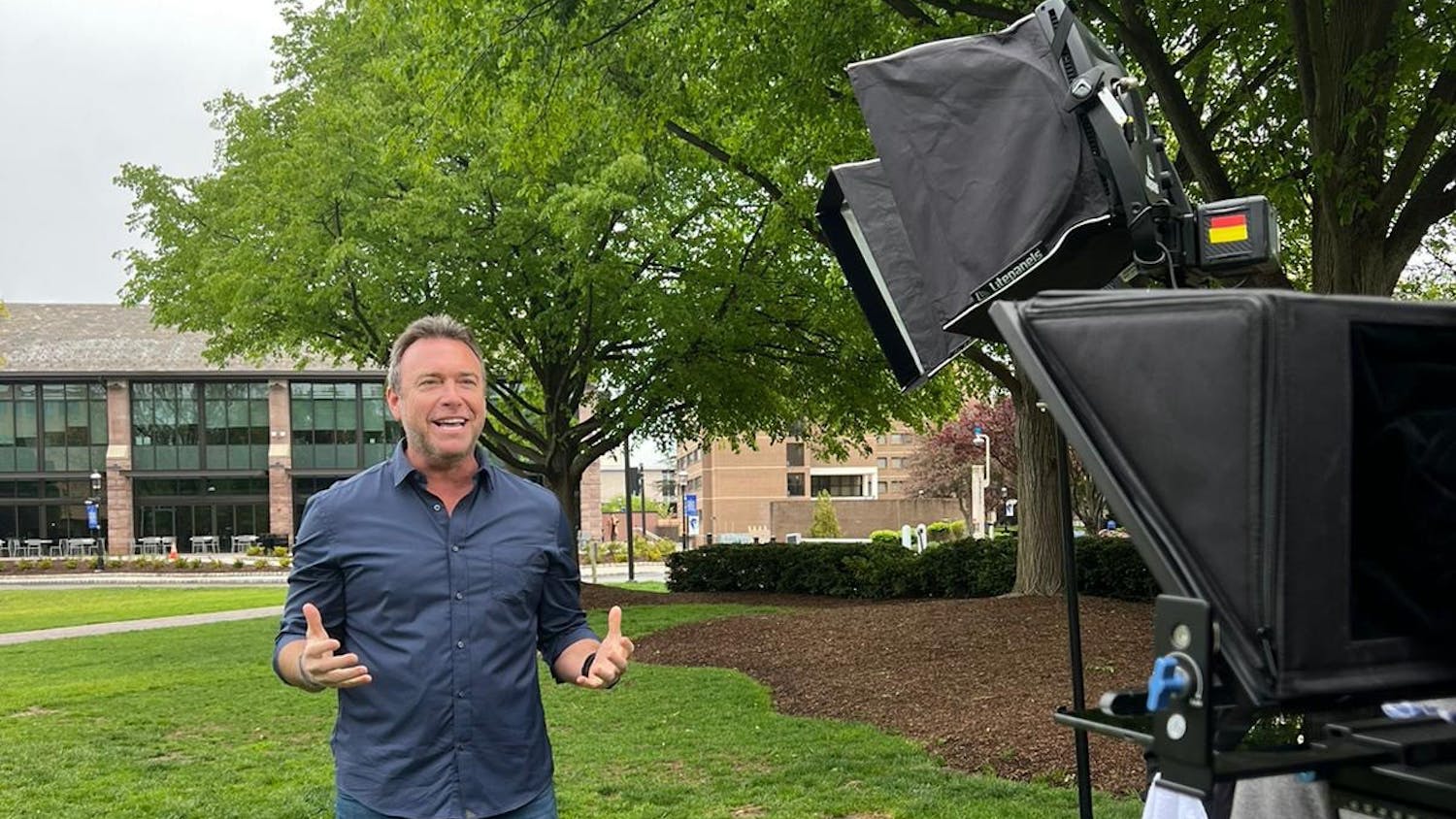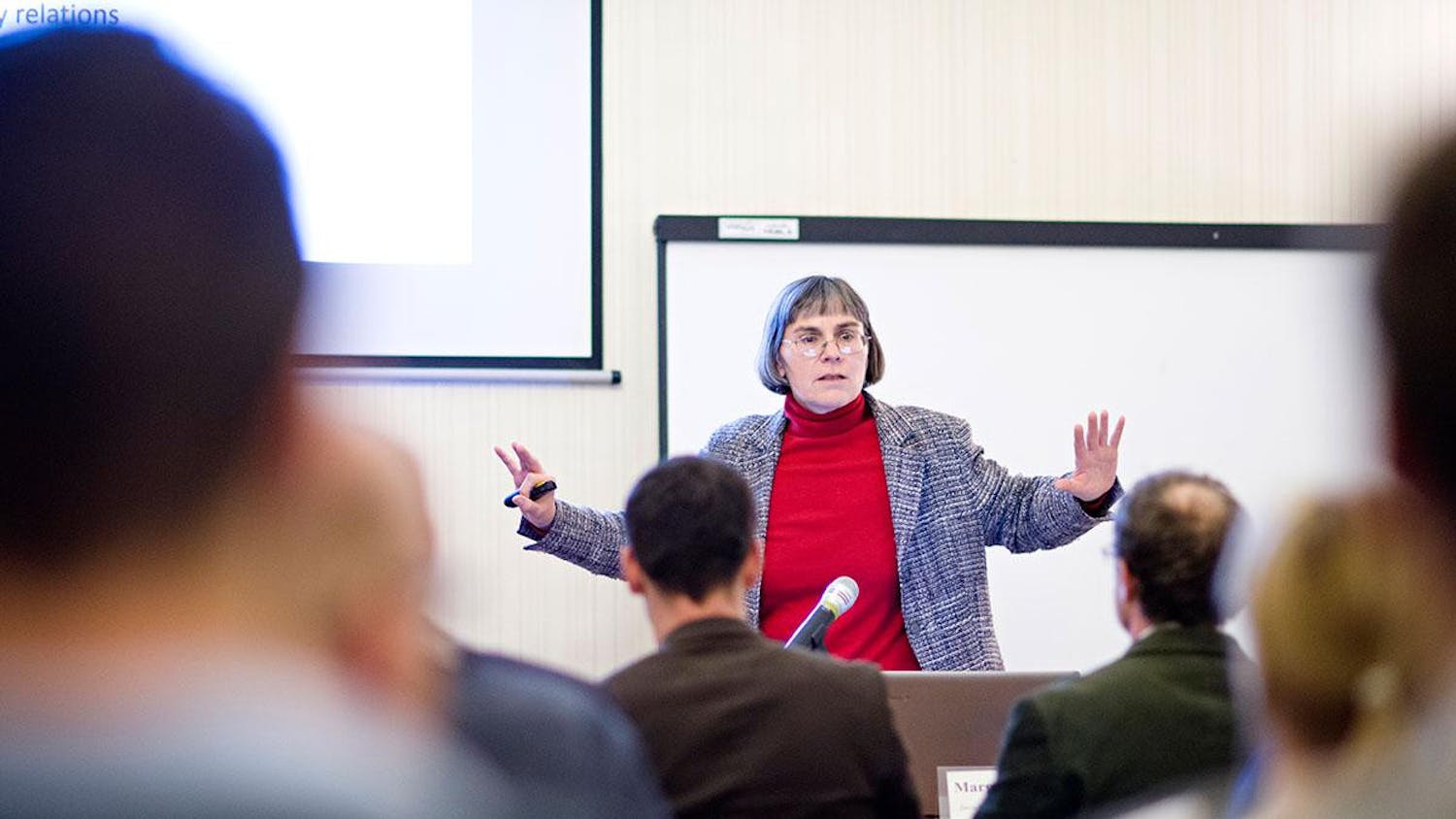 With sweaty palms, foot constantly tapping and a brain racking through questions, we’ve all felt the nerves of a job interview. College often leaves students hoping and praying that their degree will help them get a job after graduation. But as graduation looms closer, sometimes students can feel unprepared for what employers are really asking for.
When I walked into my Promotional Writing class this semester, my professor, Dr. Kristen Koehler did a presentation on the top ten qualities which employers look for in college graduates. According to her PowerPoint, a recent survey of employers by the Association of American Colleges and Universities indicated that 81% of employers want new employees with better critical thinking and analytical reasoning skills and 89% want more emphasis on the ability to effectively communicate.
These skills are known as soft skills which are the marketable qualities that students need to be learning in undergraduate courses. The top ten soft skills which employers are looking for are: strong work ethic, dependability, a positive attitude, self-motivation, team-oriented, organized, works well under pressure, effective communicator, flexibility and confidence.
While these skills are sometimes hard to quantify, they do have measurable results. Koehler said that these measurable outcomes include an extensive network, career success, work and life balance and happiness.
Koehler said she believes that the top three soft skills that will make students marketable after graduation is flexibility, effective communication skills and being a team player. A flexible student must be able to adapt to dynamic roles or cross-training opportunities, to be an effective communicator students must possess audience-focused written and verbal communication and to be a team player students must be able to see things from other perspectives and understand that they are a part of something bigger.
These skills aren’t always taught in the classroom, but Koehler said she structures her classes to educate students on these soft skills through individual reflections, partner exercises to meet and work with new and different people and structured lessons that present different simulations and/or case studies to work through to use critical thinking skills and learn about the best practices.
Dr. Evelyn Plummer, a professor in the College of Communication and the Arts, also believes that these soft skills are vital to a student’s education.
“In every class, I try to raise awareness about the many influential ways we communicate without words by using experiential activities which explore the nonverbal channels,” Plummer said. “I also include several assignments where students have to work together. As the semester progresses, I usually vary the match ups so that people get to practice adapting to others.”
Plummer said that based on what she has read in polls as well as learned through conversations with recruiters and business communication educations, the top three soft skills are the ability to clearly present and adapt information to different audiences, in both written and spoken formats, the ability to collaborate with coworkers in face-to-face and team settings and the ability to listen effectively to both the words and to the nonverbal implications behind the words.
“Whatever the actual job, employers select people who can speak, write, listen and work well with others,” Plummer said. “When comparing candidates who are comparable in terms of resume credentials, I believe the person with stronger rapport and more developed communication skills will have the edge.”
Plummer and Dr. Koehler agree that while some students have some experience with soft skills, others have a hard time understanding the context around them.
Koehler said that a Maya Angelou quote explains soft skills perfectly which is “I’ve learned that people will forget what you said, people will forget what you did, but people will never forget how you made them feel.”
“By being aware of how your words and actions influence others, you can truly make a difference in someone’s life, develop leadership and consensus-building skills and change or influence behavior to help make a difference,” Koehler added.
Rebecca White can be reached at rebecca.white@student.shu.edu.
With sweaty palms, foot constantly tapping and a brain racking through questions, we’ve all felt the nerves of a job interview. College often leaves students hoping and praying that their degree will help them get a job after graduation. But as graduation looms closer, sometimes students can feel unprepared for what employers are really asking for.
When I walked into my Promotional Writing class this semester, my professor, Dr. Kristen Koehler did a presentation on the top ten qualities which employers look for in college graduates. According to her PowerPoint, a recent survey of employers by the Association of American Colleges and Universities indicated that 81% of employers want new employees with better critical thinking and analytical reasoning skills and 89% want more emphasis on the ability to effectively communicate.
These skills are known as soft skills which are the marketable qualities that students need to be learning in undergraduate courses. The top ten soft skills which employers are looking for are: strong work ethic, dependability, a positive attitude, self-motivation, team-oriented, organized, works well under pressure, effective communicator, flexibility and confidence.
While these skills are sometimes hard to quantify, they do have measurable results. Koehler said that these measurable outcomes include an extensive network, career success, work and life balance and happiness.
Koehler said she believes that the top three soft skills that will make students marketable after graduation is flexibility, effective communication skills and being a team player. A flexible student must be able to adapt to dynamic roles or cross-training opportunities, to be an effective communicator students must possess audience-focused written and verbal communication and to be a team player students must be able to see things from other perspectives and understand that they are a part of something bigger.
These skills aren’t always taught in the classroom, but Koehler said she structures her classes to educate students on these soft skills through individual reflections, partner exercises to meet and work with new and different people and structured lessons that present different simulations and/or case studies to work through to use critical thinking skills and learn about the best practices.
Dr. Evelyn Plummer, a professor in the College of Communication and the Arts, also believes that these soft skills are vital to a student’s education.
“In every class, I try to raise awareness about the many influential ways we communicate without words by using experiential activities which explore the nonverbal channels,” Plummer said. “I also include several assignments where students have to work together. As the semester progresses, I usually vary the match ups so that people get to practice adapting to others.”
Plummer said that based on what she has read in polls as well as learned through conversations with recruiters and business communication educations, the top three soft skills are the ability to clearly present and adapt information to different audiences, in both written and spoken formats, the ability to collaborate with coworkers in face-to-face and team settings and the ability to listen effectively to both the words and to the nonverbal implications behind the words.
“Whatever the actual job, employers select people who can speak, write, listen and work well with others,” Plummer said. “When comparing candidates who are comparable in terms of resume credentials, I believe the person with stronger rapport and more developed communication skills will have the edge.”
Plummer and Dr. Koehler agree that while some students have some experience with soft skills, others have a hard time understanding the context around them.
Koehler said that a Maya Angelou quote explains soft skills perfectly which is “I’ve learned that people will forget what you said, people will forget what you did, but people will never forget how you made them feel.”
“By being aware of how your words and actions influence others, you can truly make a difference in someone’s life, develop leadership and consensus-building skills and change or influence behavior to help make a difference,” Koehler added.
Rebecca White can be reached at rebecca.white@student.shu.edu.





